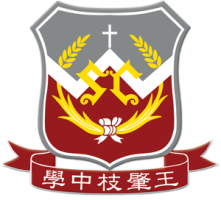| Language Policy |
English has been adopted as the teaching medium, except in Chinese Language, Chinese History, Biblical Knowledge and non-academic subjects. The school language policy emphasises the mastery of both English and Chinese language. Students are also given an opportunity to learn a third language – Japanese, which is offered in junior forms as an extra-curricular activity, and a formal subject in senior forms. Japanese language students in senior forms are required to take specific public language examination. |
| Learning and Teaching Strategies |
The school adopts a multiple teaching-learning approach. Interactive elements such as e-Learning, field trips and project work are integrated systematically into the formal curriculum, with a view to enhancing students' thinking skills, creativity and expression. Cooperative Learning is emphasized in making lessons more student-centred. Debate and drama elements are introduced to enrich language classes. E-Learning is widely used through the school-based Moodle learning platform to nurture students to be self-regulated learners beyond the classrooms. The Language-across-the-curriculum Project has been implemented to enhance language learning effectiveness through the concerted effort of different subjects. An application of diversified learning strategies, such as peer assessment and concept maps have been coordinated to further facilitate students' learning. |
| School-based curriculum |
1. Electives: 3X. Students can take 3 out of 10 elective subjects including Chinese Literature, Chinese History, Economics, Geography, History, Biology, Chemistry, Physics, Information & Communication Technology, and Business, Accounting & Financial Studies. Other than the above subjects, students can study Mathematics Extended Part Module 1 or 2. In addition, students can take Applied Learning courses offered by other institutes and other elective subjects offered by the Network Schools in Tai Po.<br> 2. Curriculum highlights: The school commits to encourage students to develop the ability of “learning to learn” through class periods in S1. S.2 students are offered character-building and leadership training in the “Leader in Me” lessons, which educate students with the "Seven Habits of Highly Effective People" (Stephen Covey). STEM elements have been incorporated in the Integrated Science and Design & Technology curricula through project learning. |
| Approach to Catering for Learner Diversity |
At the start of the year, the school organises the "Learning to Learn Scheme" for S1 students to establish good learning habits and skills. In junior forms, consolidation in languages and mathematics are provided through remedial classes. Moreover, underperforming junior form students are provided support from Guidance Committee to strengthen their motivation in studies. Additionally, we offer enrichment classes to enhance gifted students' interests. We also nominate and subsidize students to participate in different enrichment courses organised by local universities to stretch their potentials. |
| Approach to Integrated Education |
Our school adopts the Whole-School Approach to Integrated Education. Led by Special Educational Needs Coordinator, the Special Educational Needs Support Committee provides support to students with Special Educational Needs (SEN) in different areas. Our intervention strategies include administering accommodations on homework and examinations, and providing on-site professional services. The committee works closely with parents, teachers and professionals such as educational psychologists, speech therapists, art therapists and social workers to provide SEN students with the best support. Besides, teachers are encouraged to receive related training for professional development. |
| Education Support for Non-Chinese Speaking (NCS) Students |
|
| Home-School Co-operation |
The school values home-school cooperation and proactively strengthens the bond with parents. In collaboration with the Parent-Teacher Association (PTA), thematic activities such as seminars, parent talks, workshops, and outings are held annually. Parents’ voices are welcome through direct communication with the school personnel and in consultative meetings organised by the PTA. The firmly established home-school partnership facilitates the holistic development of our students. |
| School Ethos |
With the love from Jesus Christ, our school emphasises providing students with holistic education and helping students build good conduct and self-discipline under the school Motto: Learnedness, Love, Dedication and Integrity. Peer support comes from the Student Helpers Scheme and Angel Project, whereby senior students help their younger schoolmates in the junior classes to adapt to the campus life. The harmonious teacher-student relationship is also conducive to creating a trusting and caring atmosphere at school. |
| School Development Plan |
1. To strengthen teachers’ knowledge and techniques on using effective pedagogies to facilitate students’ learning.<br>2. To nurture students to be proactive and positive learners.<br>3. To unleash students’ potential through experiential learning. |
| Teacher Professional Training and Development |
The Staff Development Committee holds school-based staff development seminars and workshops to meet the teachers' professional needs. They are also encouraged to attend external training courses for perspectives and enhancement. |
| Life-wide Learning |
There are more than forty clubs including academic, religious, sports, service, and interest groups. The Students’ Association coordinates with the clubs and approves their budgets. Through club activities which are organised by the committees and mentored by teacher advisors, students are able to explore their potential, develop their strengths, and heighten their civic awareness. |
